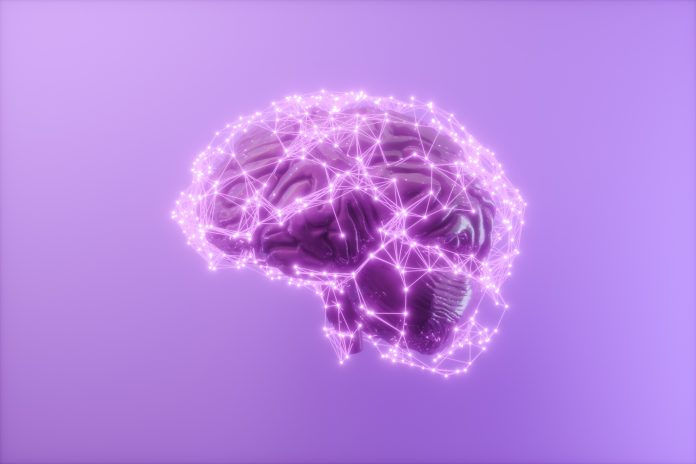With the growing burden of brain disorders, it is more important than ever to ensure the necessary approaches are available; the European Brain Council discusses the priorities for supporting brain health and research in Europe and beyond
Across the European Union and beyond, society is facing unprecedented health-related challenges. This is particularly true for brain disorders, neurological and mental alike, which are widespread, disabling, and difficult to treat. A significant amount of the European population lives with a brain condition and those numbers will continue to increase due to aging.
Diseases such as Parkinson’s and dementia have already more than doubled in incidence over the past three decades. Anxiety, depression, and stress-related disorders increased enormously during the COVID-19 pandemic. The impact of these conditions encompasses emotional, financial, and societal burdens and extends far beyond individual lives. They affect our collective wellbeing, including families, healthcare systems, and society. The costs are immense. In Europe, the economic burden of brain disorders now surpasses that of cancer, cardiovascular diseases, and diabetes combined.
Brain health as a priority
Such a high disease burden, together with the complexity of the brain and neuroscience, showcases the immensity of the problem. As improving the health and wellbeing of citizens has become a top priority for many governments, brain health should not be left behind and must take a higher position on the European agenda. Understanding brain conditions is vital in the quest to address them. Although the field of neuroscience and our knowledge of the brain has advanced considerably over the last half-century, many important aspects remain extremely elusive.
Without a substantial increase in efforts and resources to promote a fundamental understanding of the mechanisms that generate proper brain function, it will be impossible to design treatments that address the real pandemic of brain health. The time to act is now, and Europe must take a central position in the effort to better understand the brain, both through promoting fundamental scientific research and the practical and clinically beneficial application of the knowledge that basic research generates.
Increased collaborative efforts to accelerate research and innovation
Recognizing brain health as a priority and accelerating research and innovation in the space requires continuous irrigation of policymaking by interdisciplinary expertise, but most of all through close collaboration and cooperation in the community. Europe boasts a vibrant community of brain researchers, neurologists, neurosurgeons, psychiatrists, psychologists, healthcare professionals, industry, regulators, and policymakers. Together with the experiences, needs and views of patients and caregivers, they are committed to unravelling the mysteries of the brain, improving early detection and diagnosis, and developing new interventions and care.
With the aim to speak with one voice, the brain community is united to foster cooperation, promote dialogue and showcase the importance of brain research, aiming to improve the lives of the estimated 179 million Europeans living with brain conditions. Representing the community, the European Brain Council (EBC) emphasizes the importance of continued interaction with European institutions to build strong European health and research policies, raise awareness, and encourage education on the brain and the repercussions of neurological and mental health conditions on society.
Boosting global collaboration
Enhancing global brain research collaboration can spur innovation and quicken effective outcomes to benefit people living with brain conditions everywhere. Over the last few years, EBC has served as a convener for experts in the brain community to share best practices, exchange ongoing work and align priorities globally to forge a joint path forward to understand and address the brain from a global perspective rather than in silos across continents. This year, over 150 key stakeholder organizations committed to the same goal of fostering and enhancing international collaboration in the brain area convened at the Science Summit of the 78th United Nations General Assembly to highlight existing partnerships, roadmaps and potentials for extended international collaboration, and work towards the implementation and sustainability of the science mechanisms required to support international scientific collaborations.
2023 was more important than ever: as the United Nations and its Member States prepare for the post-Sustainable Development Goals era, set to be discussed during the Summit of the Future 2024 and the High-Level Conference on the UN NCD Strategy 2025, the community released a Call to Action and Policy Recommendations on Global Partnership in Brain Research to guide national, regional and global policymakers toward better addressing brain health in the future.
Towards a brain health partnership for Europe
As traction is made globally, we cannot forget about Europe, where work is still needed to prioritize brain health. To further coordinate and structure brain health research in Europe, the European Commission plans to launch a European Partnership on Brain Health in 2025/2026 as part of the second Strategic Programme of Horizon Europe.
This partnership will bring together the relevant actors from politics, society, healthcare, science, and industry to structure the brain health landscape in Europe. To prepare this partnership, the EBC led the European Brain Research Area (EBRA) project between 2018 and 2022 and now joins members of the ERA-NET NEURON (The Network of European Funding for Neuroscience Research) and JPND (EU Joint Programme – Neurodegenerative Disease Research) (namely DLR – German Aerospace Center, the French National Research Agency – ANR, the French National Institute of Health and Medical Research – Inserm) and EBRAINS within the EU-funded Coordination & Support Action (CSA) BrainHealth, officially launched on 1 November 2023.
Working to ensure a brain-healthy future
Researchers, clinicians, industry, and others are working to understand the brain further and use this gained understanding to develop novel treatments, interventions, and tools to address not only brain ill-health but also brain health as a whole. Their work is vital to improve the lives of people living with brain disorders and to keep our brains, and the brains of our future generations, healthy. Fragmented and untimely efforts can only deter the goal; each step towards increased cooperation, mitigation of risk factors, early detection and intervention is a step in the right direction.
European Brain Council
http://www.braincouncil.eu/
Twitter
LinkedIn
YouTube
Spotify















